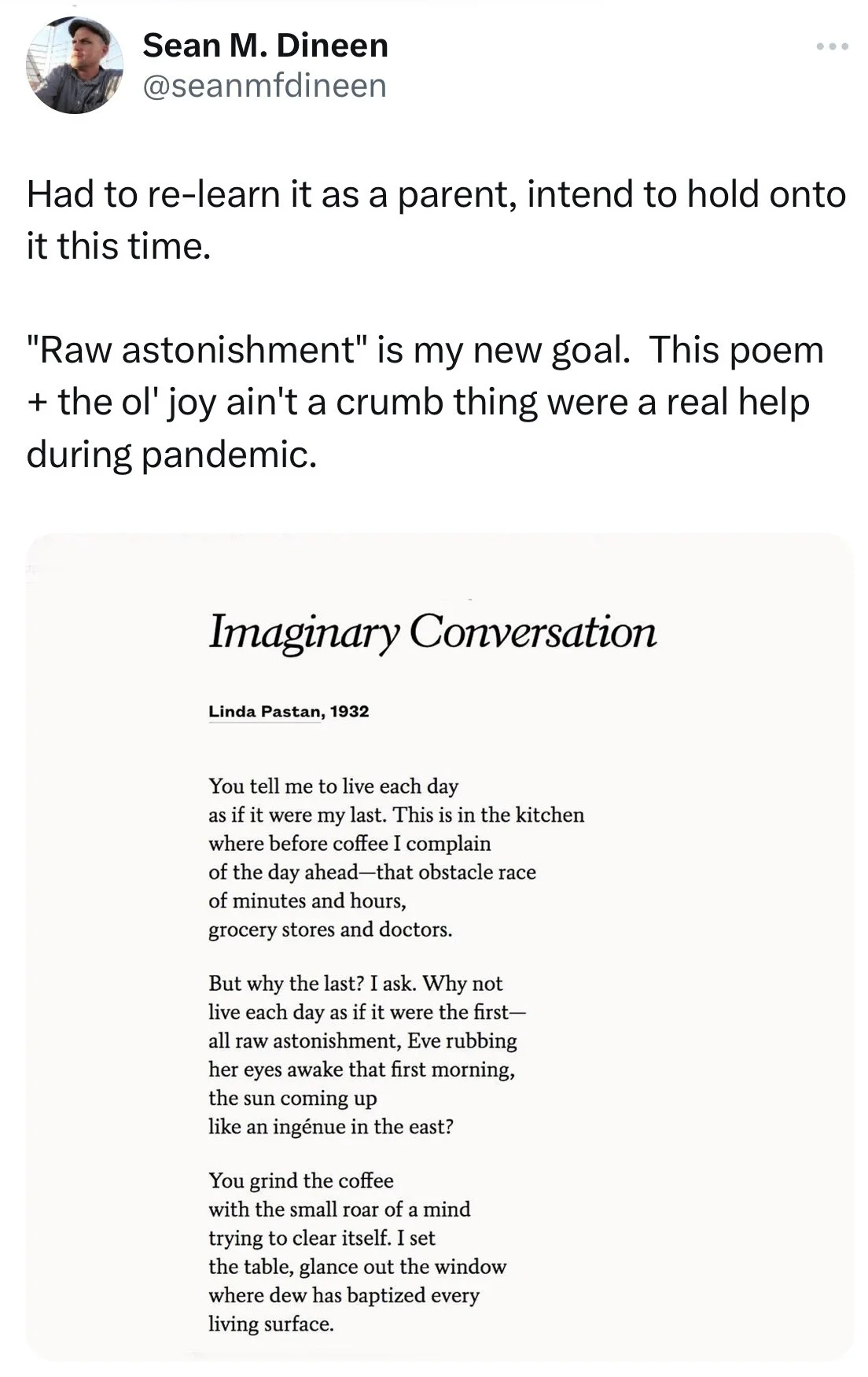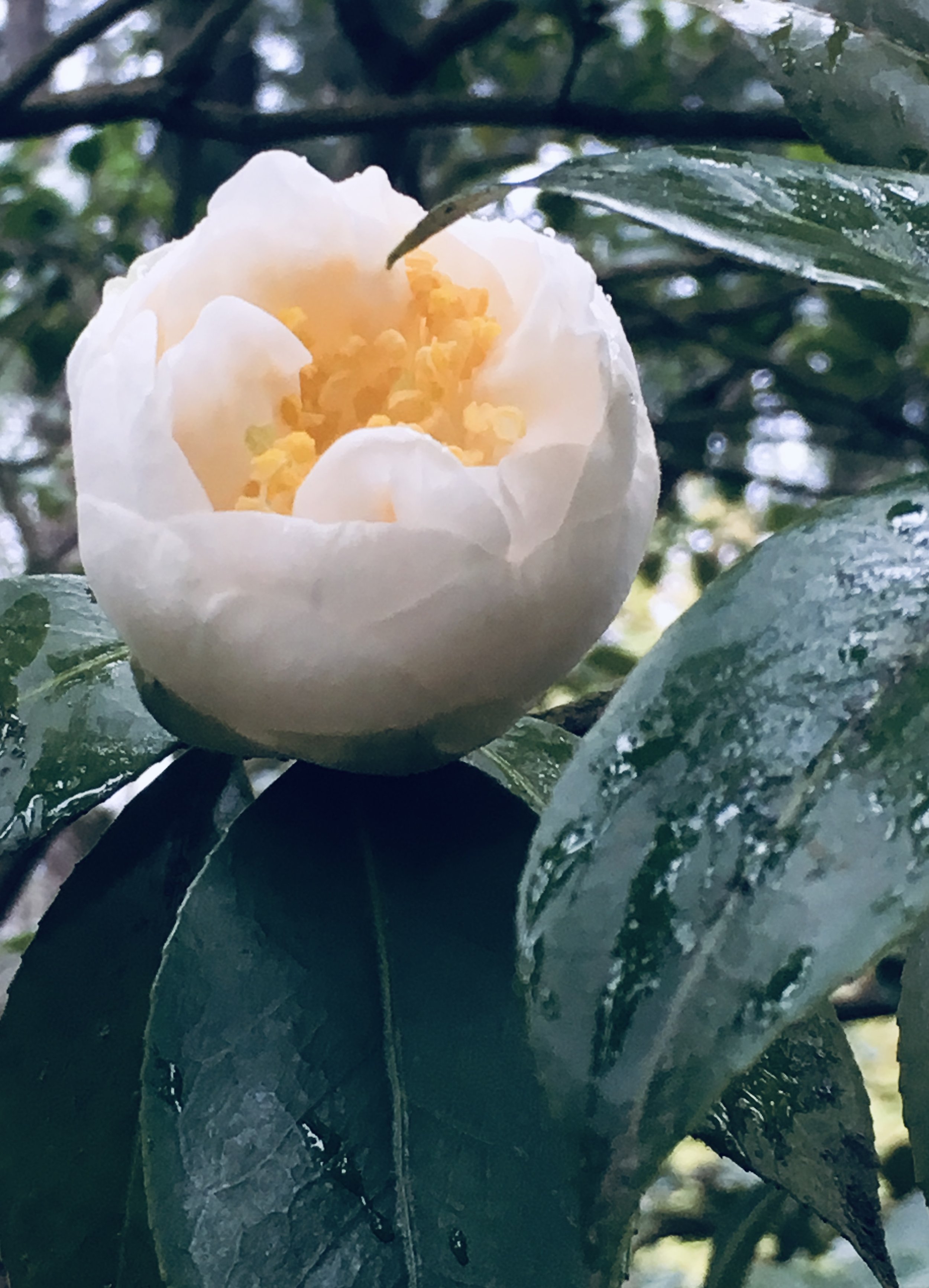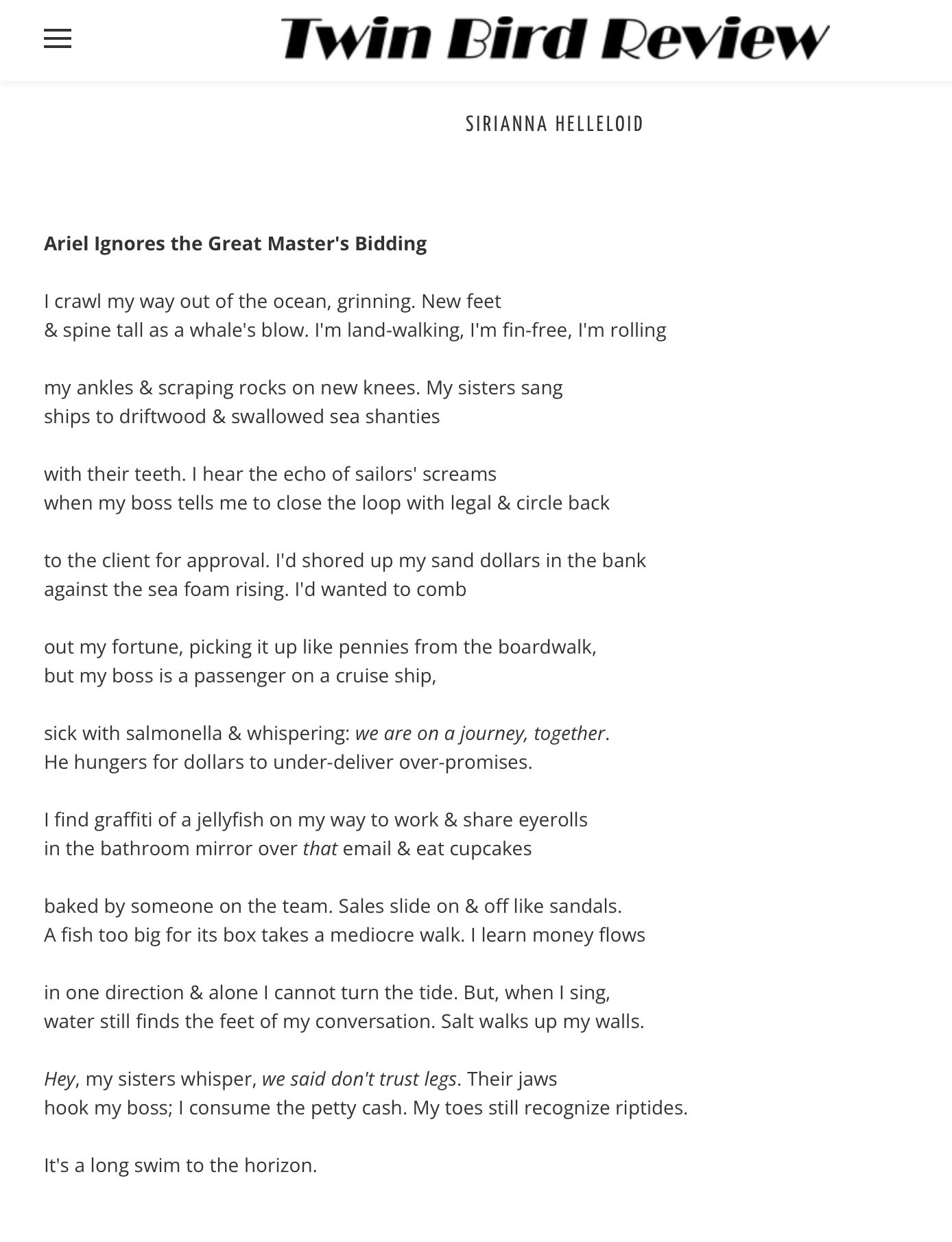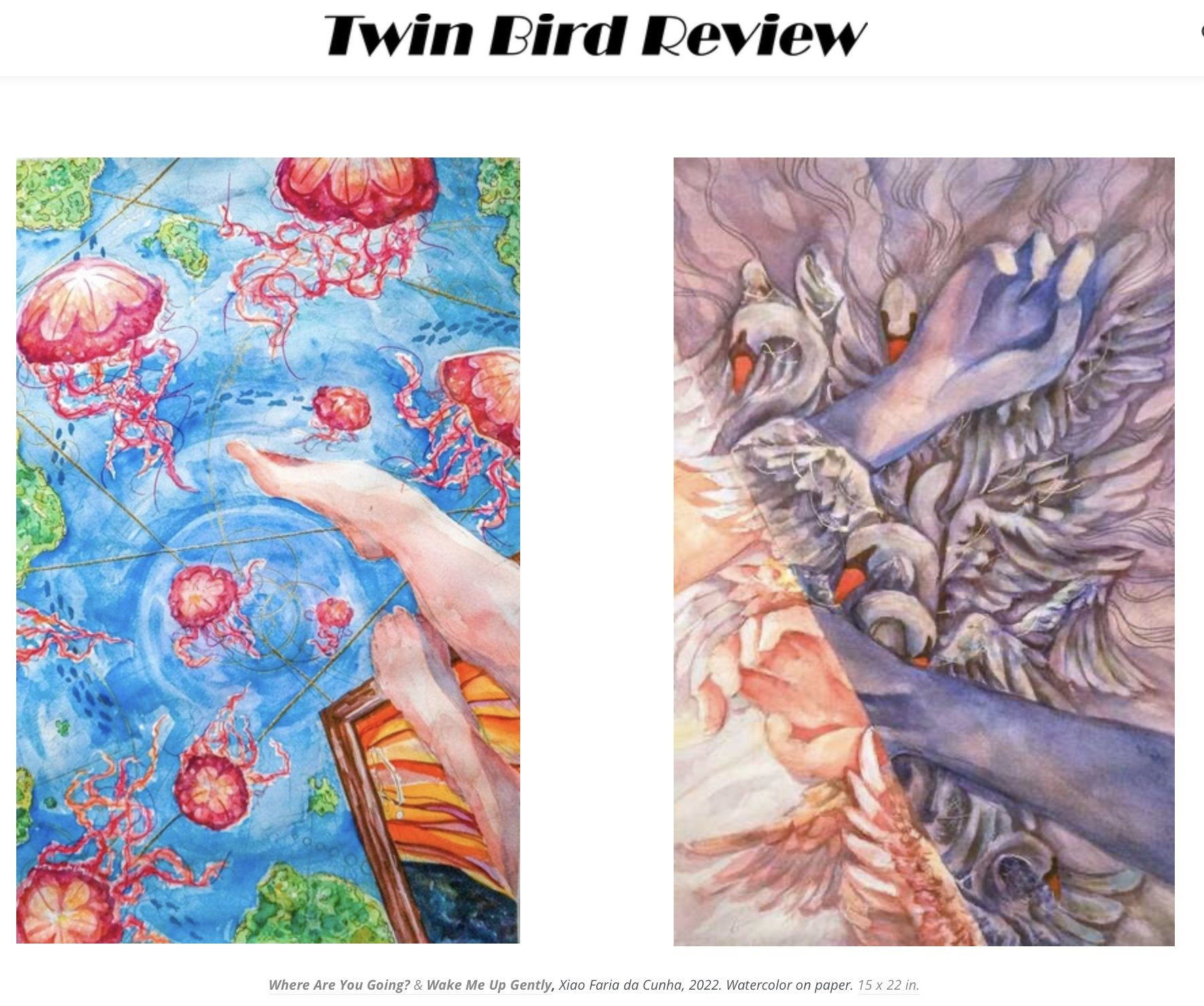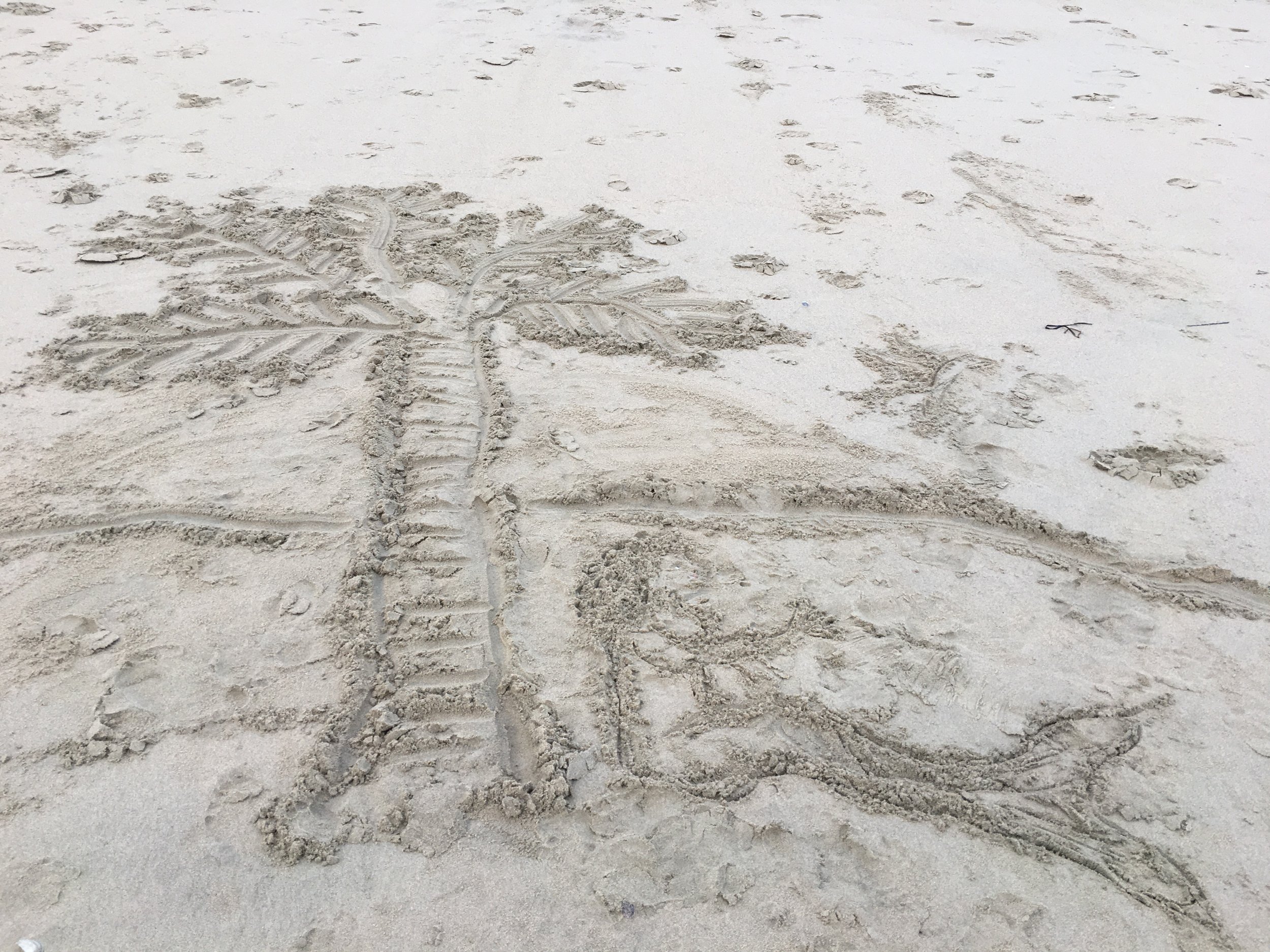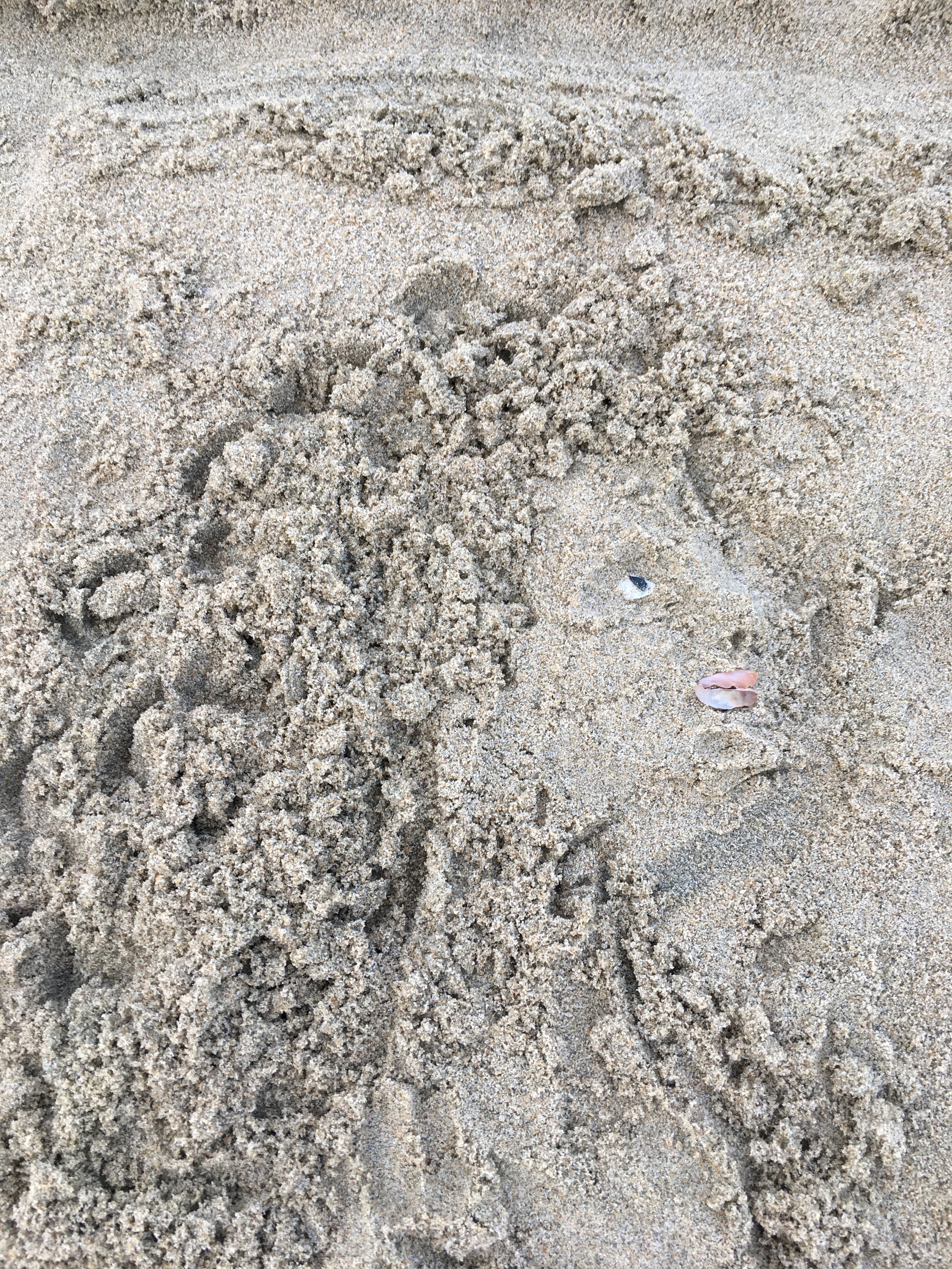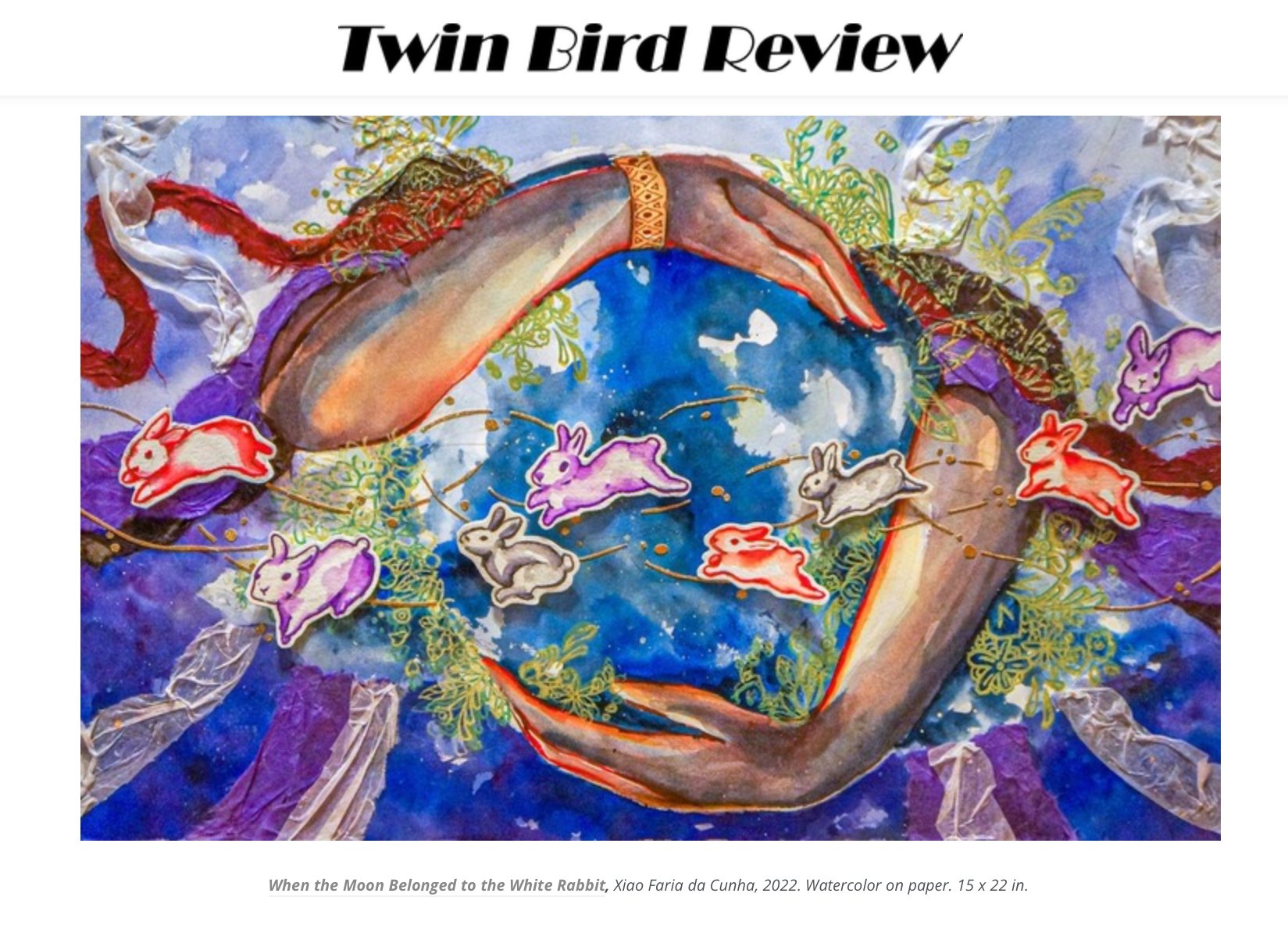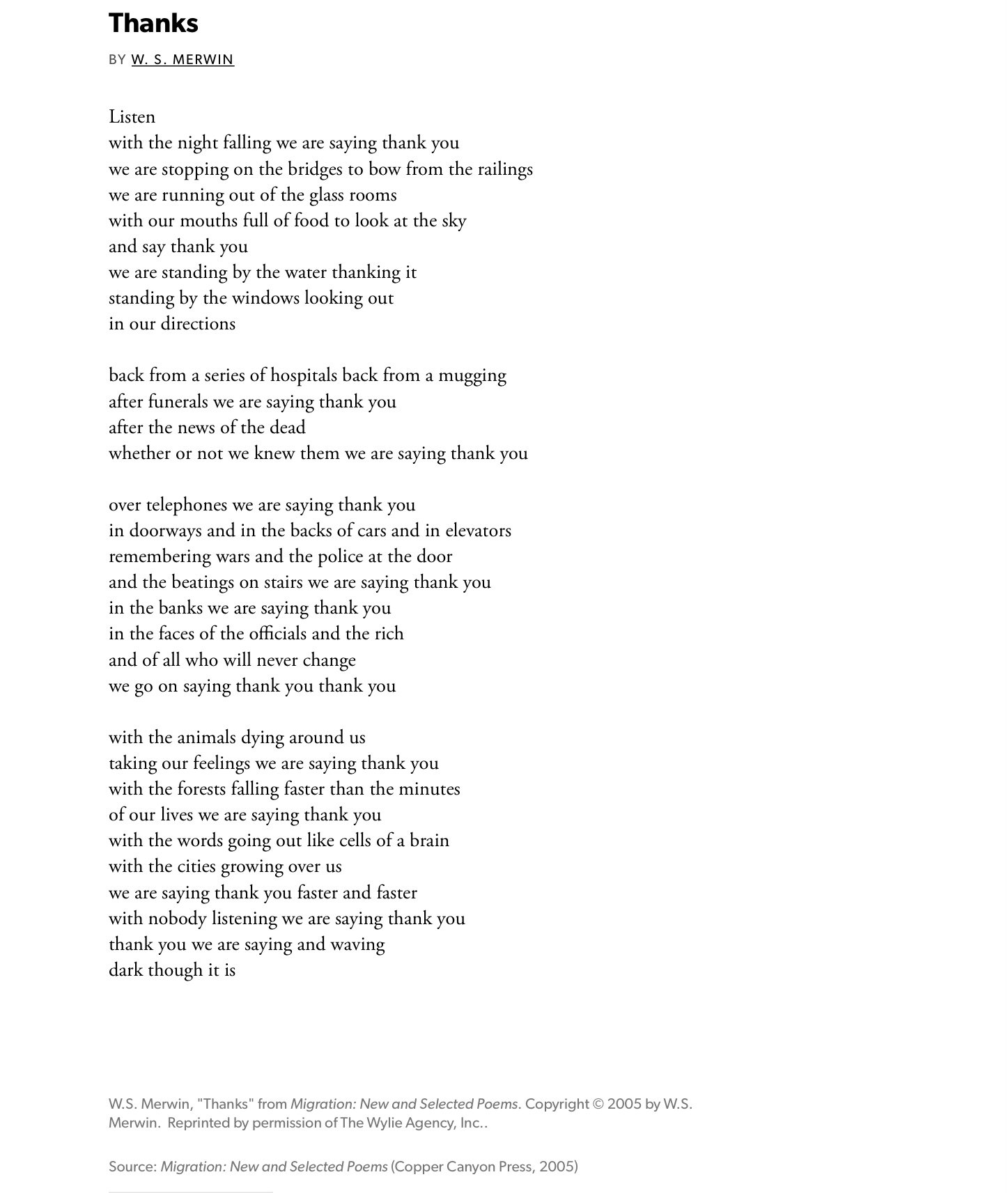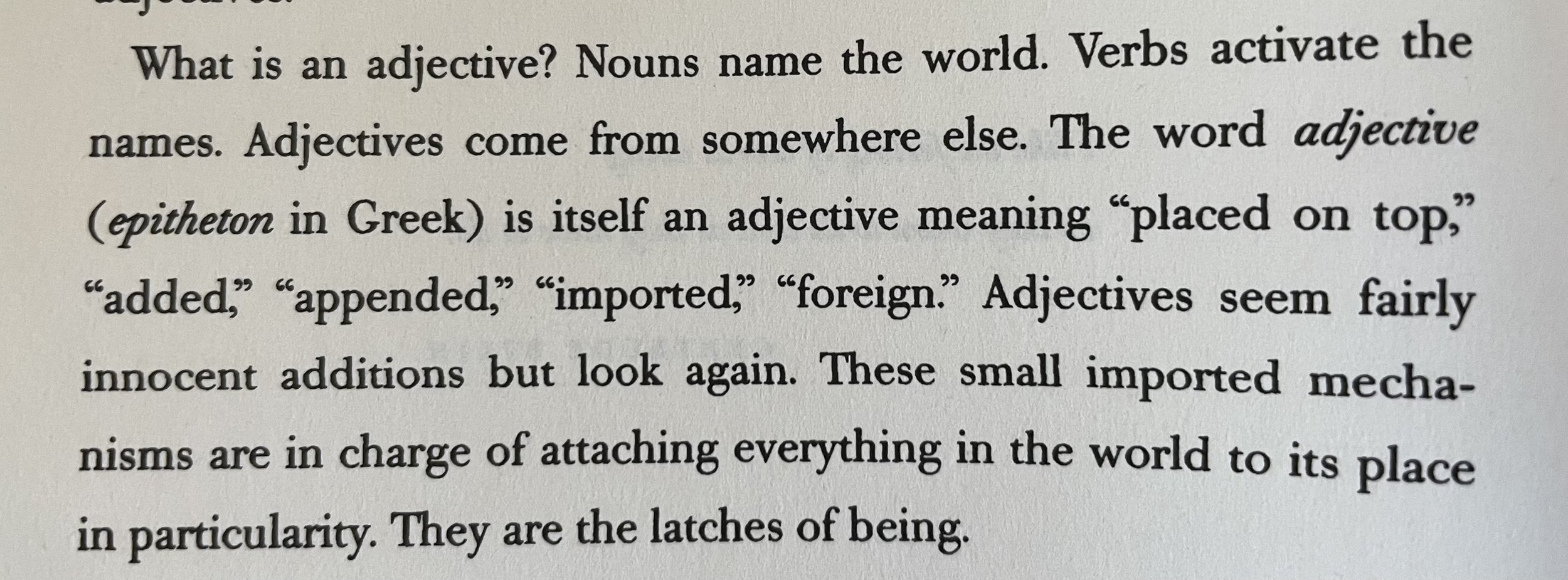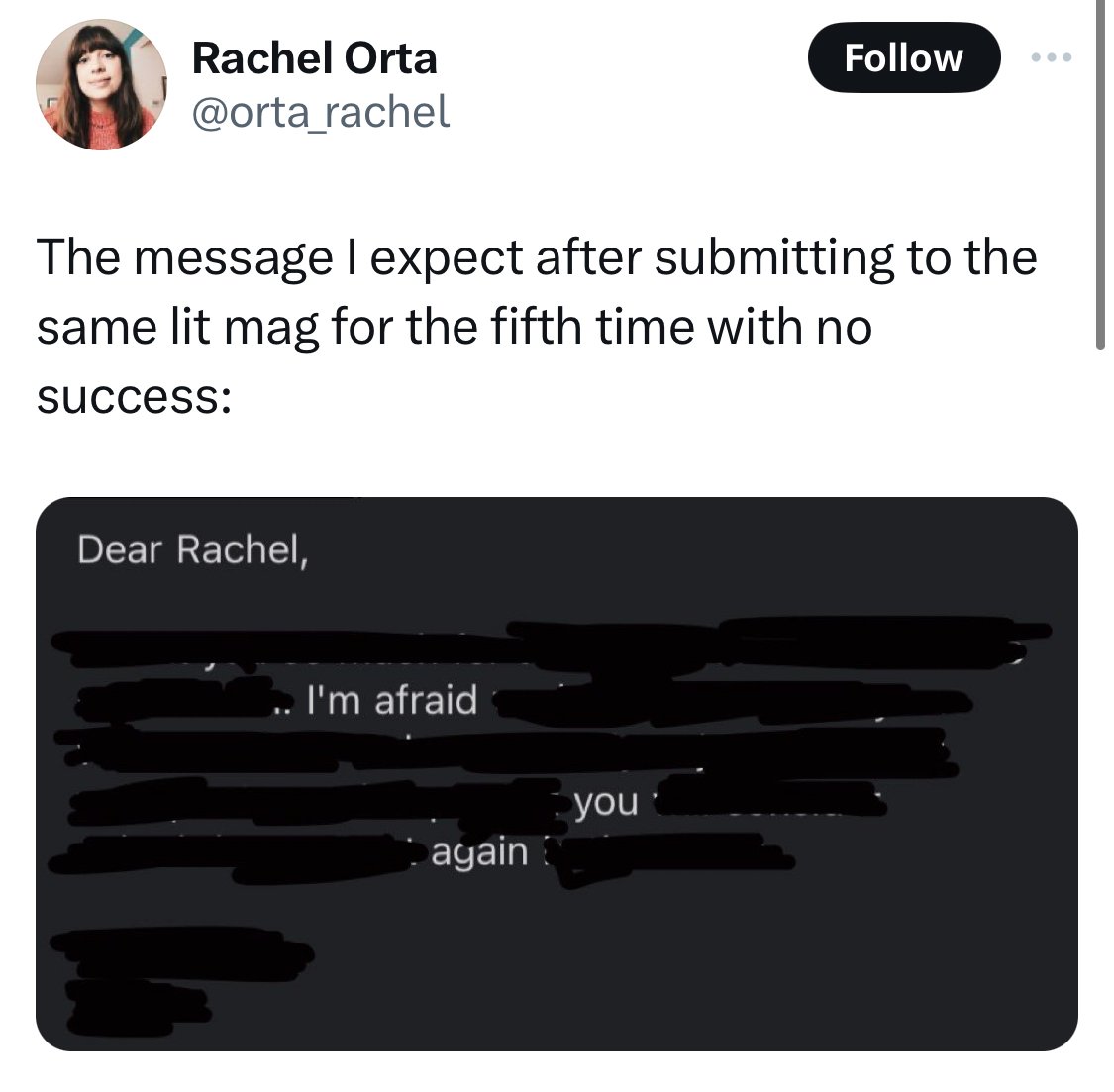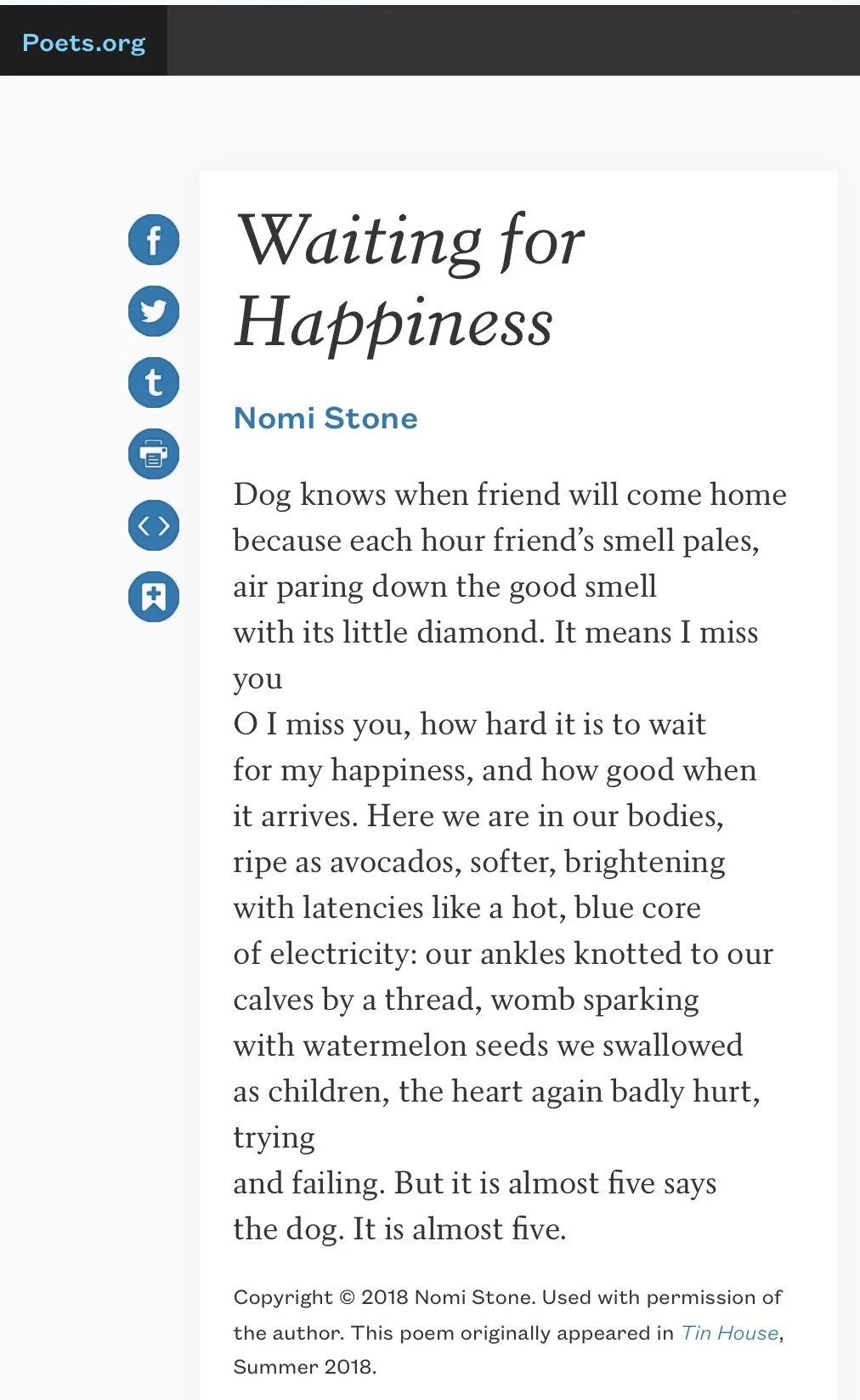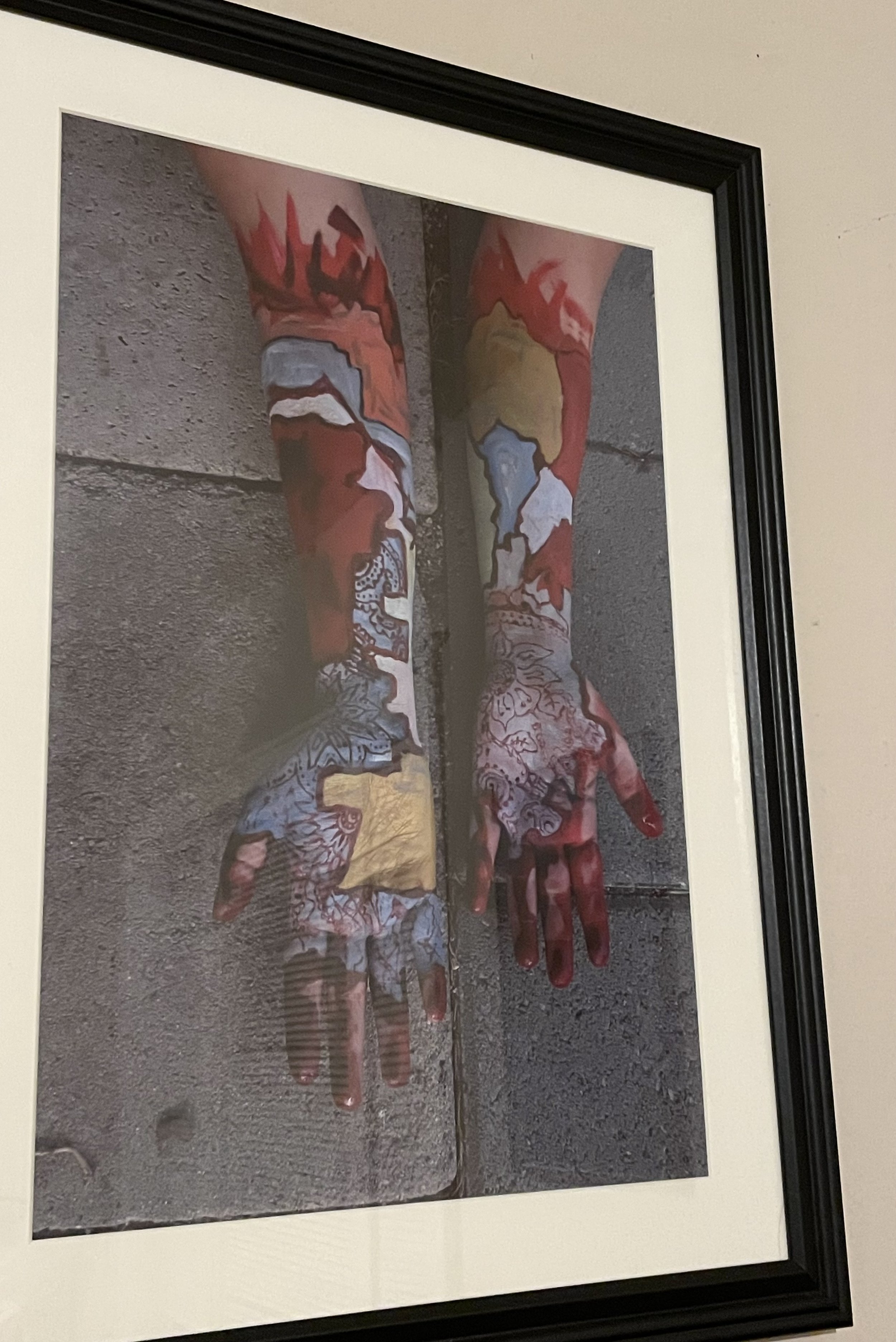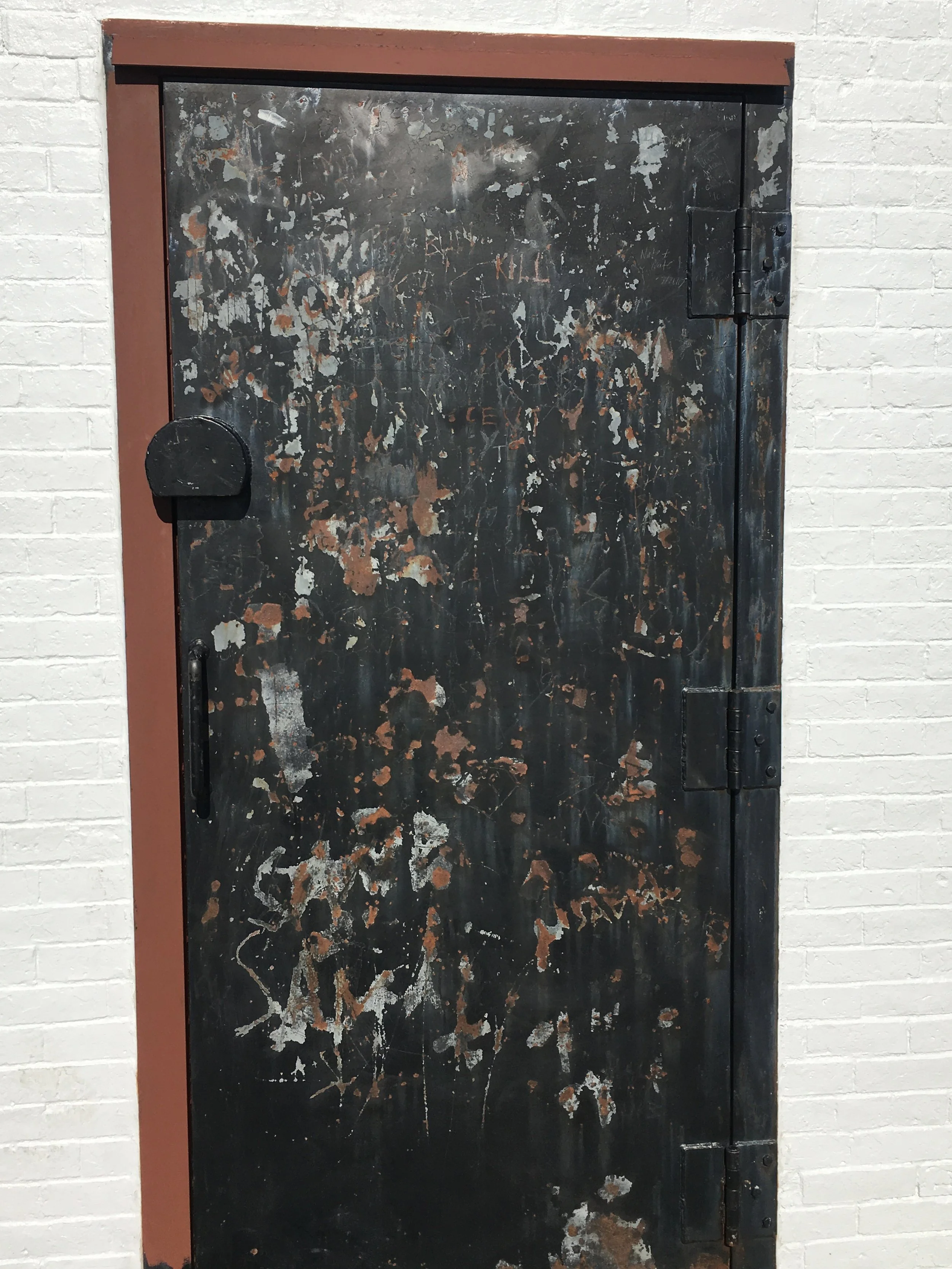The first prompt is to choose a mythical creature, fairytale character or a Disney princess and retell the story for modern times, giving your speaker an unlikely profession. Describe a banshee who works as an actuary, the Big Bad Wolf as a venture capitalist or perhaps Sleepy Beauty as a barista. Sometimes making a list of five fairytale characters and a separate list of five professions can be helpful in getting started if you are stuck.
For a second prompt, use the poem’s first line “I crawl my way out of the ocean, grinning. New feet” as a ghostline. Or, begin with the last line “It’s a long swim to the horizon” to jumpstart a story or poem. Remember to erase the line and give credit to the poet.
The third prompt is to write a poem or story from the sisters’ point of view as a response poem. How do they feel about her leaving them for land? How does the story end for them? Don’t forget to reference the original poem and author in your title or as in “after” statement. Do be careful to make this your own telling.
For another prompt, write a poem or story using the following list of words in an urban setting: “blow,” “knees,” “shanties,” “circle,” “bank,” “foam,” “cruise,” “hungers,” “graffiti,” “mirror,” “walls,” “cash” and “horizon.” Where possible, try to switch nouns to verbs and verbs to nouns.


